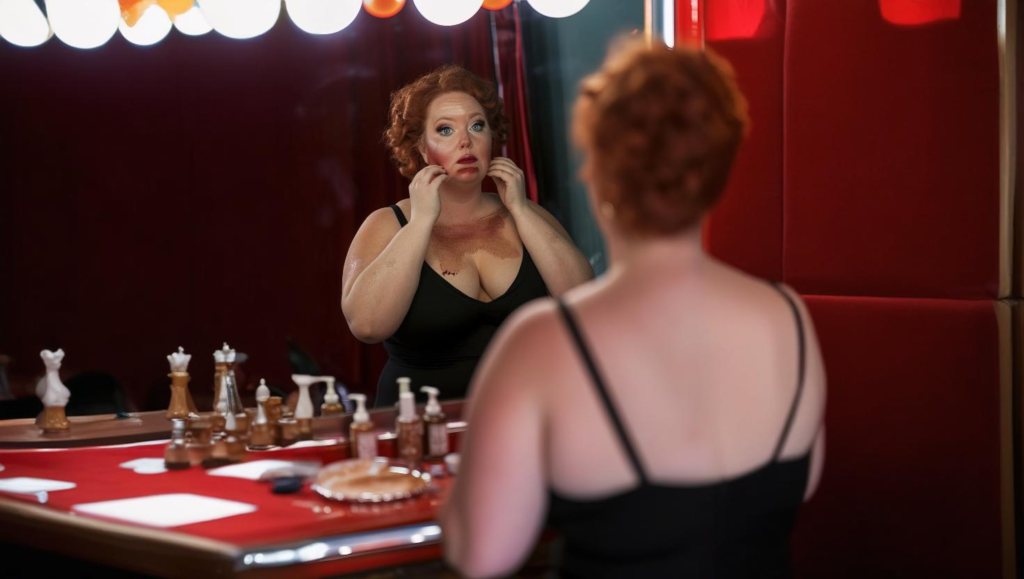Representation in Cosmetics: Exploring the Cosmetic Industry’s Impact on Women’s Self-Acceptance
Kashish Patel
February 2025
Beauty standards have always influenced the way women perceive themselves. During the Renaissance, beautiful women were portrayed to have soft curves and pale skin. This idealistic image of the beauty standard was represented through portraits and literature, exhibiting what “beauty” is supposed to look like. In modern day, the constant exposure to social media and advertisements has only reinforced beauty ideals, influencing women’s self-perception and mental health. While persisting beauty standards seem to define beauty, studies suggest that no absolute definition of beauty exists.[1] The standards of beauty are described to be determined through the socialization processes and media influences that define what is considered attractive.

Teenagers
Studies have found that the lack of representation for natural features have resulted in the standard for beauty to be extremely narrow for women and teen girls. This lack of visibility has had detrimental effects; teen girls faced an increase in low self-esteem leading to mental health and body image issues. According to a study in 2003, eating disorders among teen girls have only increased over 50 years with 1% to 5% of adolescents possessing traits for bulimia nervosa. The analysis of this data concluded the effects of mass media and preexisting body image issues.[2] Teenagers are especially vulnerable to the influences of the cosmetic industry as during this time of their life, they struggle to navigate self-identity while constantly being surrounded by the beauty standard portrayed on social media.
Women of Color
Women of color have long been pushed aside by the cosmetic industry. Historically, the beauty standard has prioritized Eurocentric ideals while failing to provide proper representation for diverse skin tones, facial features, and hair types.
In a recent scandal, the makeup brand Youthforia is facing major backlash. The company first faced backlash in 2023 when it released 15 new shades of foundation that were not inclusive of all skin tones. Despite releasing 10 new shades of foundation to combat this backlash, there was an even bigger uproar. Influencer Golloria George who often reviews beauty brands’ darkest shades posted a video on Youthforia’s shade 600, the darkest shade in the line which was pure black and was hard to differentiate from black paint. [3]
In an interview with TIME, Golloria shared her thoughts on the entire situation stating, “It was a really weird, surreal, out-of-this-world experience.”
This controversy sheds light on the amount of beauty brands which cater to lighter skin tones and Anglo-Saxon features in general. This blatant disregard for diverse skin tones, especially for women of color makes many women feel unrepresented and unnoticed.
The Response from Beauty Brands
The lack of inclusivity not only fosters insecurities within these groups of women, but recent controversies suggest that the beauty industry remains narrow-minded in assisting all consumers. However, in response to the consumer demand and social activism, many brands have started to make the change by expanding shade color ranges and embracing diverse advertising. Dove, a popular cosmetic company recognized the issues with diversity in their brand.[2] They implemented a movement to include more diversity into advertisements and modeling which received positive feedback from consumers and also raised the company’s revenue by billions.
References
[1]Madan, S., Basu, S., & Ai Ching Lim, E. (2018). Impact of culture on the pursuit of beauty: Evidence from five countries – Shilpa Madan, Shankha Basu, Sharon Ng, Elison Ai Ching Lim, 2018. Retrieved from https://journals.sagepub.com/doi/10.1177/1069031X18805493
[2] Castillo Castro, K. (2023). Dove: Shifting Standards and Ideal Self-Perception. The International Trade Journal, 38(1), 91–98. https://doi.org/10.1080/08853908.2023.2279223
[3] II, M. M. (2024). Why beauty brand youthforia is facing backlash. Retrieved from https://time.com/6972800/youthforia-dark-skin-foundation-backlash/





